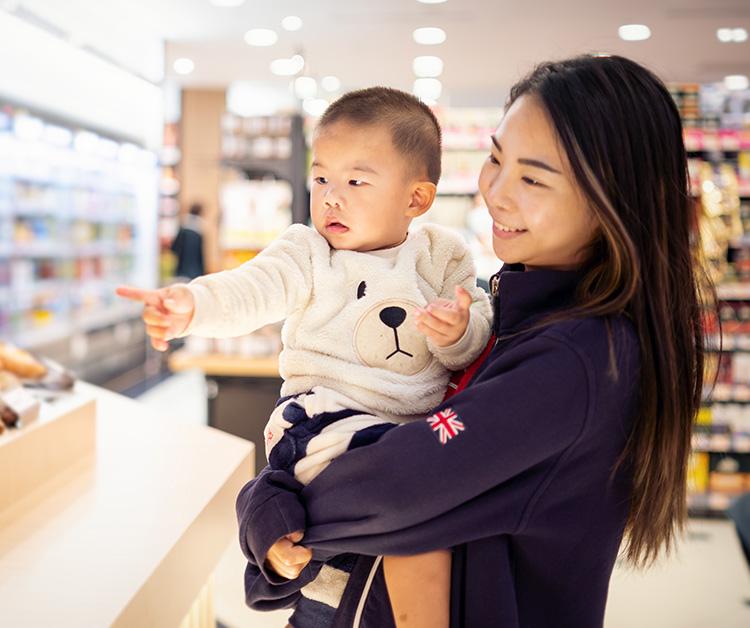
Watching your baby learn to communicate is one of the most exciting parts of parenting! From their first coos to saying their first words, language development happens in stages. Every baby develops at their own pace, but there are some general milestones that can help you understand what to expect along the way.
In the earliest months—from birth to around four months—your baby is already busy exploring the world of sound. Even though they aren’t forming words yet, you might notice them alerting to noises, smiling or quieting when you speak, and making gentle cooing sounds like “ooooo” or “aahh.” These early interactions are your baby’s first steps toward communication.
As they reach the four-to-six-month mark, things get even more exciting. Now, your baby might start giggling and laughing, especially when you engage with them. They begin to experiment with different sounds, and you might hear playful noises like blowing raspberries. This period is all about back-and-forth sound exchanges—a kind of early conversation that lays the foundation for more complex speech.
Around 7-9 months, you’ll likely notice an increase in babbling. Your little one may string together sounds like “mamamama” or “babababa” as they explore the rhythms and patterns of language. Then, as they approach the 10-to-12-month stage, many babies start imitating sounds and even saying one or two words, such as “mama” or “dada.” Alongside these words, gestures like pointing, waving, or showing you an object help bridge the gap between sound and meaning.
Typically, as babies move into the seven-to-nine-month phase, when you say “No,” your baby might pause or stop what they’re doing, showing that they’re beginning to understand the concept of boundaries. Even though their comprehension is still developing, their reaction to your tone and facial expressions is a big part of learning how to navigate their world.
When Do Babies Learn Their Name? It might surprise you to learn that even in the first few months, your baby is already starting to recognize sounds that are familiar, including their own name. In those early days, they turn toward voices and react to the sound of someone speaking.
Around 7-9 months, the recognition becomes more pronounced. When you call your baby’s name, they’ll often look right at you, showing that they’re beginning to understand that this word refers to them. This recognition is a wonderful sign of social and cognitive development.
Understanding words is a gradual process. Early on, your baby links sounds with the faces and objects around them. By the time they’re between seven and nine months old, they might start associating certain words with familiar people and objects. Around 10-to-12-months, many babies understand simple phrases—things like “Go bye-bye” or “Look at Mommy” become meaningful to them. One of the best ways to encourage this understanding is to talk about your day as you go through it. Narrating your activities—“Mommy is washing your hair,” or “We’re going to Grandma’s house”—helps your baby connect words with actions and places.
As parents, you want the best for your baby's growth and development—whether it's their first babble, understanding their name, or learning to say those magic first words. With Enfamil Family Beginnings®, we’re here to help you navigate every step of the journey, providing expert advice and exclusive perks to support you along the way. When you join, you'll receive tailored insights based on your baby’s unique milestones, along with helpful resources to guide you through each phase of their development. Our goal is to empower you with plenty of knowledge to inspire confidence in your parenting choices!
All information on Enfamil, including but not limited to information about health, medical conditions, and nutrition, is intended for your general knowledge and is not a substitute for a healthcare professional's medical identification, advice, or management for specific medical conditions. You should seek medical care and consult your doctor or pediatrician for any specific health or nutrition issues. Never disregard professional medical advice or delay seeking medical treatment, care, or help because of information you have read on Enfamil.